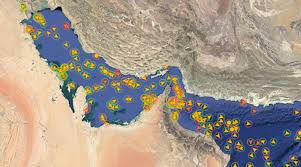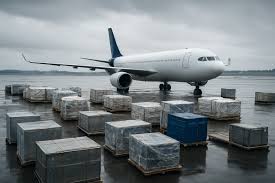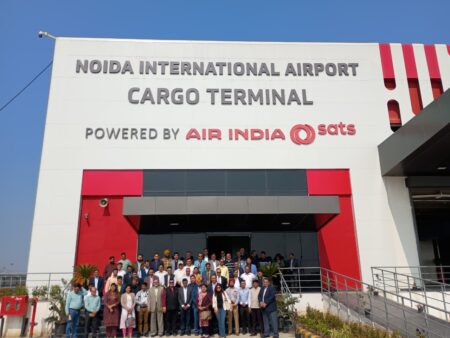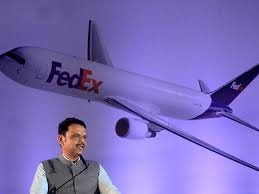Nitin Mittal, Head – Cargo, Noida International Airport, discusses the air cargo industry’s evolving digital landscape, sustainability efforts, and the strategic need for technological investment. He highlights the sector’s growth potential and challenges amid geopolitical tensions.

The air cargo industry is experiencing a transformative surge in aviation
The air cargo landscape is evolving rapidly. While speed remains a critical factor, the industry is undergoing a significant digital transformation aimed at optimising efficiency and boosting productivity. This transformation requires modern infrastructure and innovative approaches.
Overcoming challenges
There is a need to integrate advanced digital systems and technologies, which requires investment. While adopting technology involves upfront costs, the long-term benefits—such as enhanced efficiency, data-driven decision-making, and operational excellence—far outweigh the initial expenses. Embracing technology fosters transparency and accuracy and ultimately strengthens the industry’s competitiveness. Therefore, strategic investment and the implementation of technology are crucial for the continued growth and advancement of India’s air cargo sector.
Geopolitical impacts
Geopolitical events can rapidly disrupt supply chains, necessitating real-time tracking and agile response mechanisms. Some of the key impacts of these events include rerouted flights that lead to longer flight paths, increased fuel consumption, and higher operational costs. The need to circumvent conflict areas can also prolong transit times for air shipments, leading to delayed deliveries. This is especially impactful for time- and temperature-sensitive shipments due to the higher risks of disruptions and temperature incursions. Geopolitical tensions also reduce access to direct routes due to airspace restrictions, limiting route availability and increasing competition for cargo flight space. These challenges have heightened the air cargo industry’s focus on risk assessment and contingency planning. To mitigate the impact, the industry needs to prioritise safety and compliance, focusing on risk management strategies that protect personnel, shipments, and assets. By leveraging technology, nurturing talent, and promoting sustainability, the air cargo industry can navigate these uncertainties and continue playing a vital role in global supply chains.
There is a need to integrate advanced digital systems and technologies, which requires investment
Debunking air cargo myths
There are several misconceptions regarding the air cargo industry, with one common notion being that it caters solely to high-value or time-critical shipments. While airfreight undeniably plays a vital role in these areas, its utility extends across a diverse spectrum of goods, including perishables, consumer commodities, manufacturing inputs, medical goods, and even less time-sensitive products when speed and reliability are of utmost importance. Furthermore, the intricacy of air cargo operations is often underestimated. It is not merely about loading packages onto aircraft; it involves complex global networks, sophisticated tracking and data management, rigorous security protocols, and specialised handling tailored to different types of cargo.
Greening the skies: Air cargo’s sustainability efforts
The air cargo industry is working on sustainable practices and technologies to go greener. It is committed to sustainability through initiatives like Sustainable Aviation Fuel (SAF), reducing packaging waste, and optimising operations. SAF is revolutionising the industry by significantly cutting carbon emissions compared to traditional jet fuel. Efforts to reduce packaging waste are underway, focusing on minimising single-use plastics and overall packaging materials. Additionally, optimising operations through digital solutions enhances efficiency and reduces the environmental footprint by streamlining tracking, customs clearance, and data exchange processes. These steps are crucial for a greener, more sustainable air cargo industry. At Noida International Airport (NIA), all GSE fleets will be electrically powered, supporting the green terminal approach, and sustainable products will be used in cargo operations.
Air cargo’s role in economic growth
The air cargo industry is witnessing a transformative surge, reflecting a pivotal shift in the nation’s aviation landscape. Data from the Airports Authority of India shows that in FY24, the air cargo industry saw a 7% year-on-year increase, with volumes rising to 3.4 million tonnes. This growth has been driven by a 10% surge in international cargo operations and the booming e-commerce sector within the country. The Indian government’s vision of reaching 10 million tonnes of air cargo throughput by 2030 has been instrumental in driving this growth. However, to sustain this momentum and achieve the target, the industry will require more support, particularly in infrastructure development at tier 2 and tier 3 airports, streamlining regulatory procedures, simplifying customs regulations, and improving air connectivity. Enhancing last-mile connectivity and integrating air cargo facilities with regional transportation infrastructure (such as roads and railways) will be crucial. By working together, the government and industry can tackle these challenges, growing trade, creating jobs, and driving economic growth.











